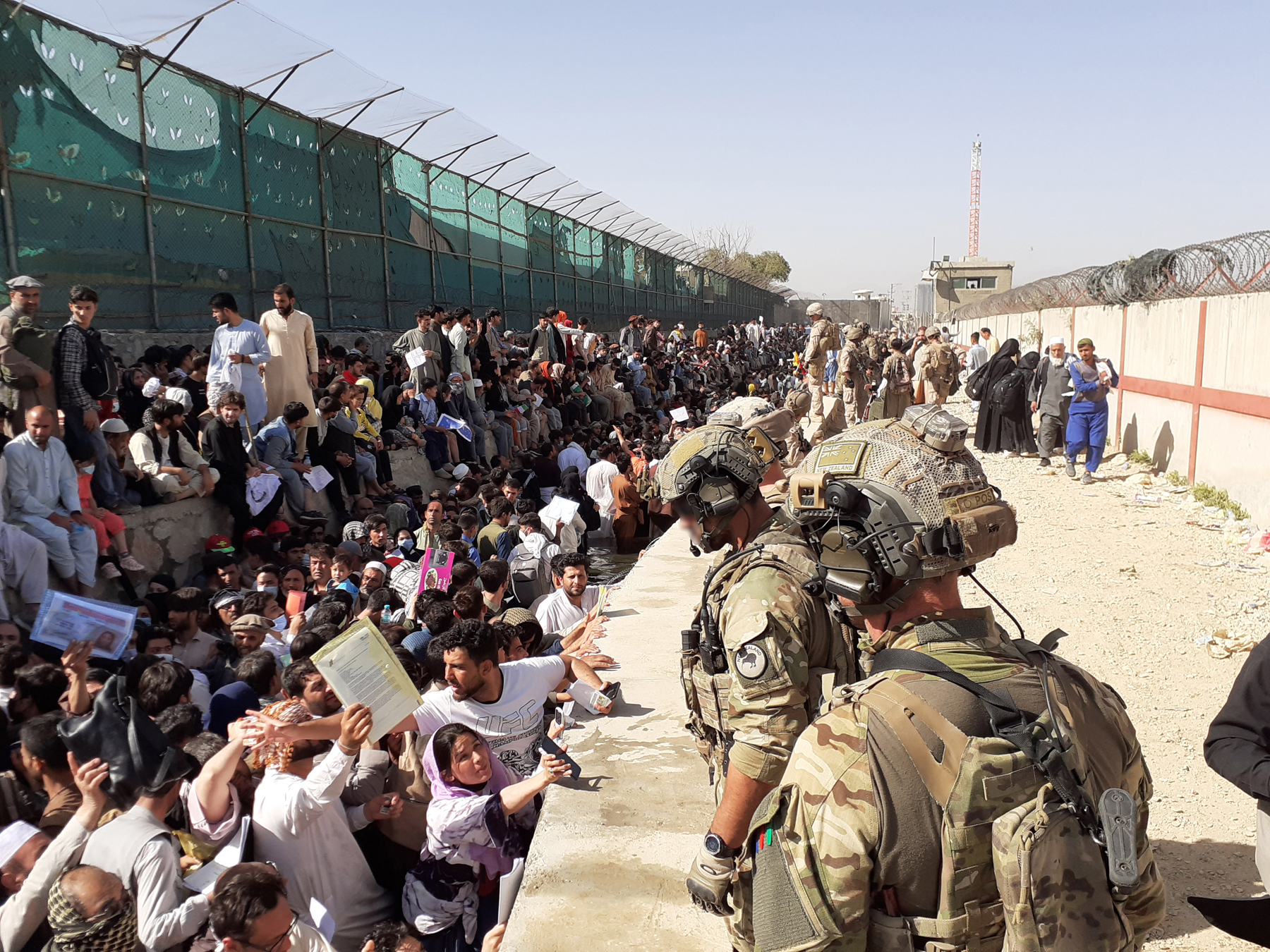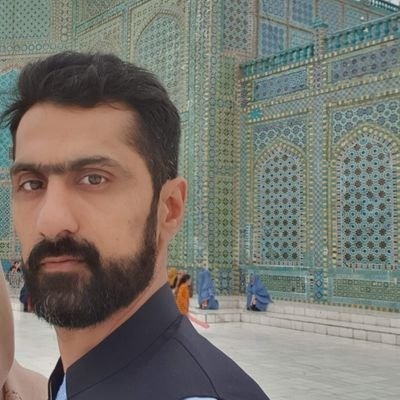The international community will be vital in helping Afghanistan to survive Taliban rule - but it has to start with a change of approach by the media
On August 30 last year, the last US military C-17 aircraft lifted off from Kabul International Airport ending 20 years of US occupation and a failed state-building project.
In the final days while US and NATO forces were flocking to get out of Afghanistan, thousands of Afghans gathered around Kabul International Airport also hoping to escape the wrath of the Taliban and retributory killings for those who might be considered the “leftovers” of the occupation.
The scene around Kabul airport played repetitively for days on TV channels worldwide. In those moments, Western media focused on questioning whether the Taliban had changed, only adding to the uncertainty people were feeling about the future.
Nevertheless, soon the majority of western media outlets had also left Afghanistan, leaving a collapsing economy without any media to report on the desperation of people living in post-US withdrawal Afghanistan.
With the war in Ukraine and the media’s focus turning to Europe, Afghanistan remains a distant memory in the minds of much of the world.
The departure of the international community also meant the end of a vital lifeline for local Afghan news organisations. Most of them had been funded by the international community; but now many were forced to close, further discouraged by the Taliban’s harsh policy towards journalism, with outlets required to report only what the Taliban wanted.
As some people had thought that the Taliban had changed, this hard-earned belief was rapidly fading away as it began silencing voices of opposition. With the absence of any sort of media presence to hold it to account, the Taliban has focused more on controlling people than tackling the economic meltdown the Afghan economy faced.
The Turkish novelist, Elif Shafak, wrote on Twitter: “In recent protests, women’s rights activists in Afghanistan were called “puppets of the West”, “whores”; physically assaulted, stopped with electric devices, pepper spray. Two activists were abducted by Taliban. The silence of the international media is deafening.”
The invisible war the population of Afghanistan fights alone against poverty, unemployment and starvation is not terribly exciting for Western media, as it does not involve military forces
It has been almost nine months since the Taliban took power in Afghanistan. More than half a million workers are estimated to have lost their jobs and unemployment is only expected to increase to more than 900,000 jobs by the second quarter of 2022, according to the International Labour Organisation (ILO).
The withdrawal of most NGOs and the freezing of Central Bank assets has created a major financial crisis for Afghanistan. Over half of the country’s population lives below the poverty line, and food insecurity is rising; 22.8 million people are identified as “acutely food insecure”, including hundreds of thousands who have been displaced by conflict since last year. The aid-dependent engine of the economy and a once-booming private sector have come to a halt.
The invisible war the population of Afghanistan fights alone against poverty, unemployment and starvation is not terribly exciting for Western media, as it does not involve military forces.
Even at a time that it is desperate for international recognition, the Taliban leadership has shrugged off any responsibility for delivering services when most people of Afghanistan don’t have enough to eat. In his first speech, Taliban Prime Minister Mullah Mohammad Hassan Akhund said: “The Taliban promised freedom, the end of occupation and establishment of Islamic rule. The Taliban did not promise food, but God has.”
“I have never seen anyone dying from hunger because Allah has promised to provide for everyone, and one can live even by eating grass,” added Anas Haqqani, a member of Haqqani Network of Taliban.
As well as leaving the provision of food to Allah, the Taliban has also embarked on imposing social restrictions which have made it even harder for people to provide for themselves - predominantly targeting women.
The order for women to wear a head-to-toe Hijab did attract attention from Western media once again, but only to portray the negativities created by such conservative policies.
What remains completely ignored is the collapsing economy and the lack of service delivery to starving people, which could sooner or later trigger a wave of migration.
But it could also force a situation in which a government is formed accommodating not only the Taliban but also people from different walks of life without ethnic, religious and ideological discrimination. This is what international media should be focusing on, with the aim of bringing back the international support Afghanistan needs.
“Although the winter famine was largely averted thanks to donor support and programmes like the WFP, the humanitarian crisis and poverty are continuing and not being addressed at root causes. This means the international community would need to keep funding aid continuously unless something changes,” says Masuda Sultan, an Afghan-American women’s rights activist and Advisory board member of UNFREEZE AFGHANISTAN, a Women-Led Campaign Supporting the Afghan People’s Wish to Live in Peace and Prosperity.
Many journalists’ concept of Afghanistan is rooted in their friendships with Afghans on the anti-Taliban side of the war, and that has coloured their analysis of the situation
Graeme Smith, senior consultant for Crisis Group’s Asia programme
The Taliban government, mostly comprised of ideologists, lacks the necessary skill to run a government that will provide materially for its people. In the end, the Taliban will need more people with different skills than just its stubborn ideologists.
After decades of war, the people of Afghanistan are faced with another uncertain future - one which could turn bloody, given the rising resistance groups in the northern part of the country challenging the Taliban authority.
A new Western media approach will be valuable in inviting and encouraging changes that will benefit all by forming an inclusive government in Afghanistan and uplifting the needy to prevent a humanitarian crisis resulting from an economic collapse of the system.
An inclusive government does not necessarily mean accommodating politicians from the previous government - rather, it would be about embracing different people with different political and ideological approaches.
This will also require international media organisations to change their own approach to Afghanistan, where most journalists have over the past two decades used personal connections with local journalists and fixers to inform their coverage.
“Many journalists’ concept of Afghanistan is rooted in their friendships with Afghans on the anti-Taliban side of the war, and that has coloured their analysis of the situation,” says Graeme Smith, senior consultant for Crisis Group’s Asia programme.
Masuda Sultan adds: “The media can do better by reporting on people who are working to bring peace and solutions to Afghanistan. Rather than war, Afghanistan needs people who can work across lines of division for rebuilding the country and work to heal the pains of the past. These are the voices that you don’t often hear in the media - ordinary people who are not on Twitter but who are trying to rebuild their lives after decades of war.
“It’s the farmers, the teachers, the doctors and the engineers. They are the true engine of economic growth that need to be mobilised and heard from.”
Sayed Jalal Shajjan is a journalist in Afghanistan
The views expressed in this article are the author’s own and do not necessarily reflect Al Jazeera Journalism Review’s editorial stance





































